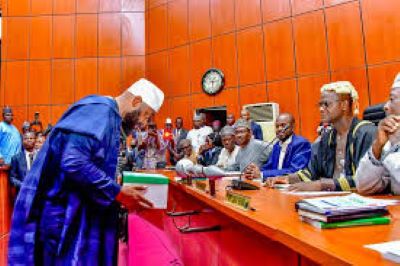The Niger State House of Assembly has formally approved Governor Mohammed Umaru Bago’s request to raise ₦70 billion through a bond issuance to finance critical infrastructure and social sector projects across the state.
The Speaker of the House, Abdulmalik Sarkin-Daji, directed the Clerk to transmit the approval to the Executive, paving the way for the administration to move forward with the first phase of the state’s ₦100 billion 2025 bond raise programme.
The approval follows the governor’s formal request submitted to the House and read during plenary on May 15, presided over by Deputy Speaker Afiniki Dauda.
The executive correspondence revealed that the State Executive Council, at its 55th sitting on April 22, had already approved the issuance of the ₦70 billion as the first tranche of the bond programme.
Governor Bago, in the letter to the Assembly, stated that the bond was intended to fund transformational projects in healthcare, education, infrastructure, water supply, and inter- and intra-state road connectivity—sectors he described as critical to improving the lives of Nigerlites and boosting the state’s long-term development.
“This bond initiative is not just about raising funds,” Bago said earlier this year when he first hinted at the plan. “It is about delivering legacy projects—projects that speak to the needs of our people today and position Niger State for prosperity tomorrow.”
The governor had signaled his administration’s intention to seek a capital market facility as part of a broader strategy to bridge the state’s infrastructure gap during various public engagements earlier in 2024.
He emphasized that public-private investment models and strategic borrowing, when tied to tangible outcomes, would serve as game-changers in Niger’s development trajectory.
With the Assembly’s approval now secured, the Niger State Government is expected to proceed with the necessary arrangements to float the bond on the capital market, subject to regulatory approvals.
Observers say this move, if properly managed, could significantly accelerate project delivery in key sectors and bring the Bago administration’s ambitious “New Niger” development blueprint closer to reality.
NAN


